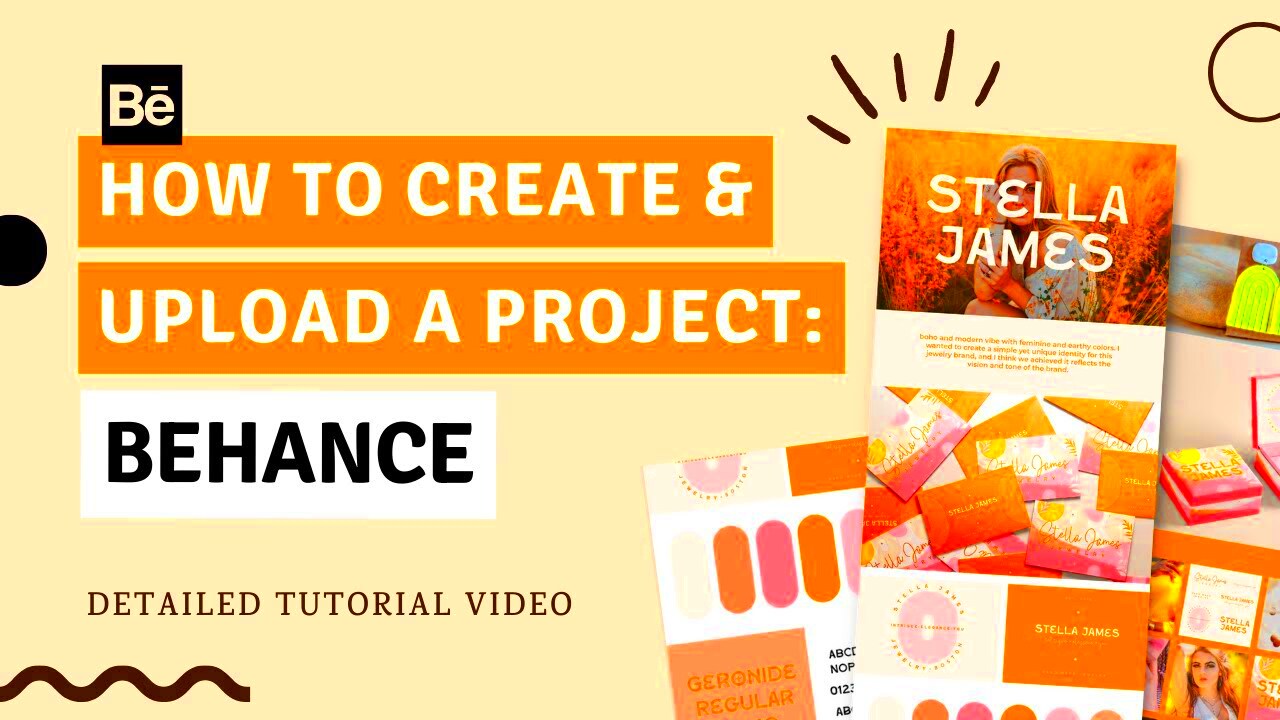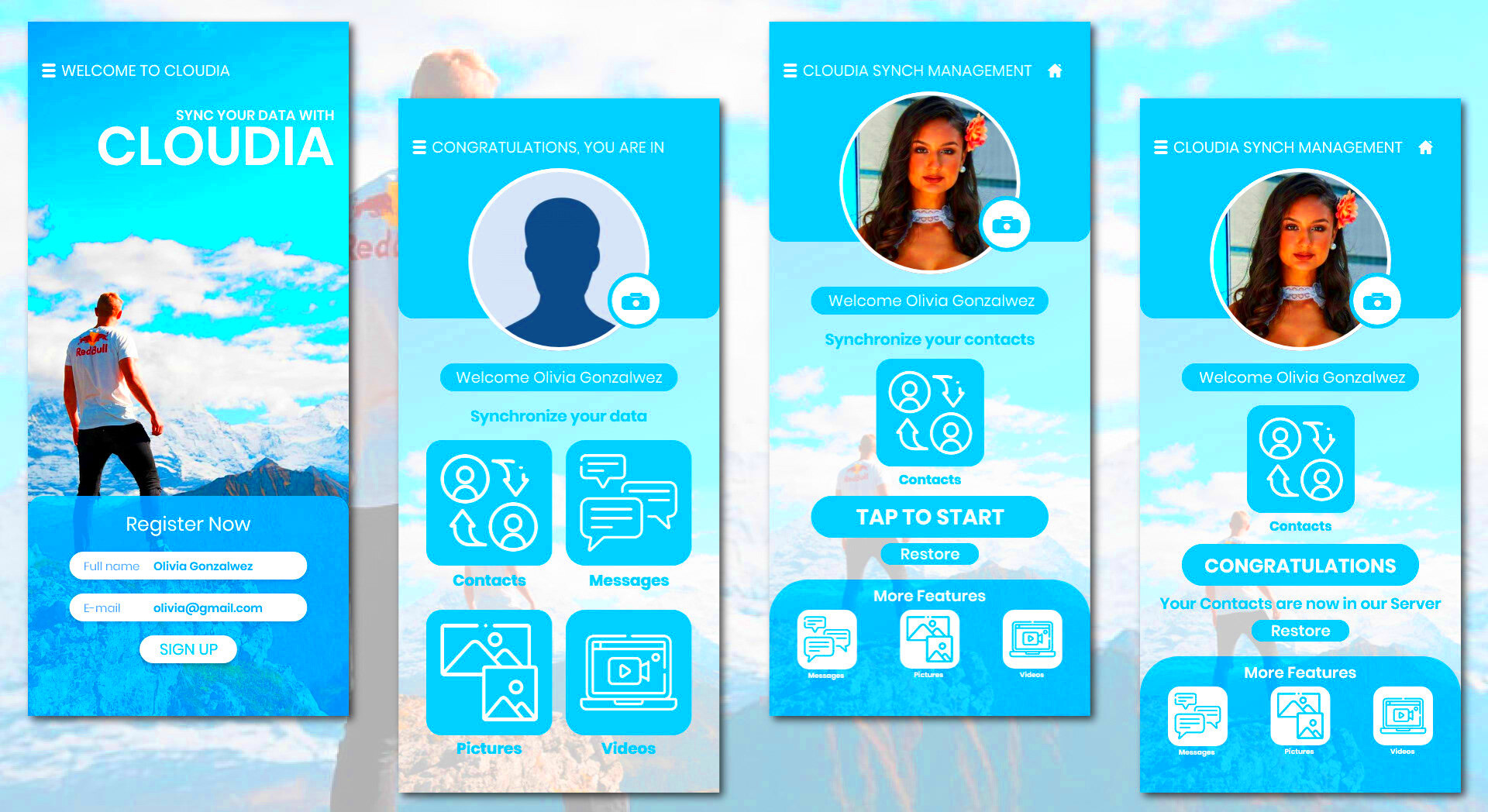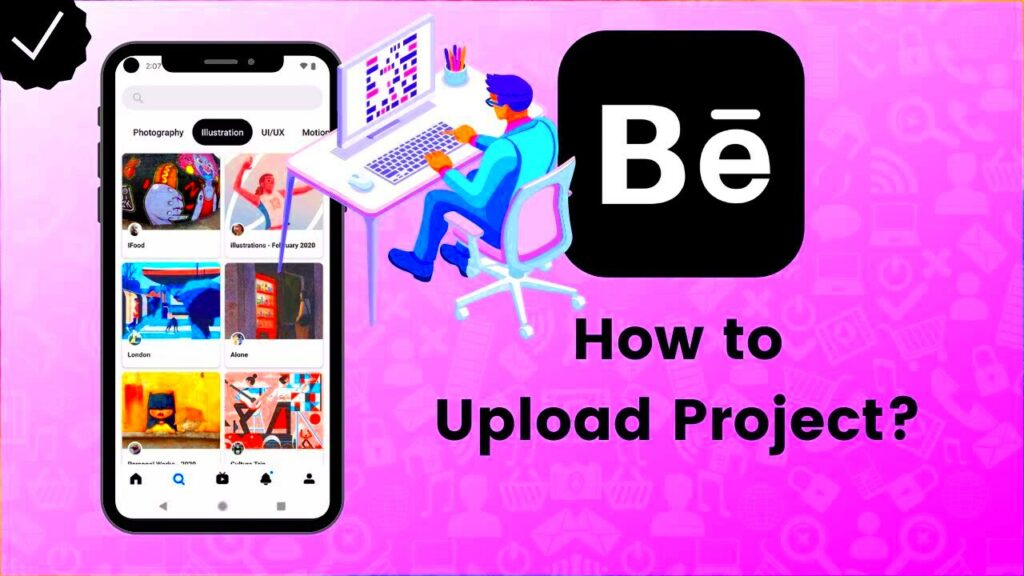Behance is a platform where creatives share their work and connect with others in the industry. It’s a space for designers, artists, and photographers to showcase their projects and gain feedback from peers. With millions of users, it’s a vibrant community that celebrates creativity and collaboration.
When you upload your work to Behance, you're not just sharing your projects; you're joining a global network. This community consists of people who appreciate design and art. You can get inspired by others, find collaborators, and even discover job opportunities. It’s a place where feedback is valued, and sharing your work can open doors to new possibilities.
Benefits of Uploading Prototypes on Behance

Uploading prototypes on Behance comes with several benefits that can enhance your creative journey. Here are some key advantages:
- Visibility: Sharing your work can help you reach a wider audience.
- Feedback: You can receive constructive criticism that helps you improve your designs.
- Networking: Connect with other creatives and industry professionals.
- Portfolio Building: Showcase your best work to potential clients or employers.
- Inspiration: Discover new ideas by exploring the work of others.
By regularly updating your portfolio on Behance, you can keep your work fresh and attract more attention from viewers.
Also Read This: Can You Access YouTube TV in Australia and Other International Locations
Steps to Prepare Your Prototypes for Upload

Preparing your prototypes for upload is crucial to make a good impression. Follow these steps to ensure your work shines:
- Choose the Right Prototype: Select the best project that showcases your skills and creativity.
- Gather Supporting Materials: Include images, videos, and descriptions that explain your design process.
- Optimize Your Files: Make sure images are high-quality but not too large to slow down loading times.
- Write a Clear Description: Explain your project in simple terms, highlighting key aspects and your design approach.
- Organize Your Presentation: Create a visually appealing layout that guides viewers through your project logically.
Taking these steps will help ensure your prototypes are well-prepared for the Behance community.
Also Read This: Earnings Information for Shutterstock Images
How to Create an Attractive Project Presentation

Creating an attractive project presentation on Behance is key to capturing the attention of viewers. A well-organized and visually appealing display can make your work stand out. Here are some tips to help you present your prototypes effectively:
- Start with a Catchy Title: Your title should grab attention and give a hint about the project.
- Use High-Quality Images: Ensure that the images you use are sharp and clear. This will help viewers appreciate the details of your work.
- Include a Project Overview: Write a brief introduction that explains the purpose of your prototype and your design goals.
- Break Down Your Process: Use headings and sections to show your design journey. Consider using screenshots, sketches, and diagrams.
- Add Context: Share the background information about the project, such as the target audience and problem-solving approach.
- Keep It Engaging: Use storytelling techniques to guide viewers through your project. This makes it more relatable and enjoyable.
By following these tips, you can create a project presentation that not only showcases your work but also connects with your audience.
Also Read This: Understanding Local Channel Issues on YouTube TV and How to Fix Them
Best Practices for Uploading Prototypes
When uploading your prototypes to Behance, following best practices can make a significant difference in how your work is received. Here are some essential guidelines:
- Check Your Settings: Ensure your privacy settings allow others to view and comment on your project.
- Tag Your Work: Use relevant tags that describe your project accurately. This helps people find your work.
- Choose the Right Category: Select a category that fits your project to reach the appropriate audience.
- Keep a Consistent Style: Use a consistent design style across all your projects to create a cohesive portfolio.
- Update Regularly: Refresh your portfolio by adding new projects or updating existing ones.
Following these best practices can enhance your visibility on Behance and showcase your professionalism as a designer.
Also Read This: The Story of James James on YouTube
Engaging with the Behance Community After Uploading
Once you've uploaded your prototypes, engaging with the Behance community is crucial for building connections and gaining visibility. Here are some effective ways to interact:
- Respond to Comments: Take time to reply to comments on your projects. This shows appreciation and fosters connections.
- Give Feedback: Review and comment on other users’ work. Constructive feedback is often welcomed and can lead to meaningful exchanges.
- Follow Other Creatives: Follow designers whose work you admire. This can lead to mutual follows and potential collaborations.
- Share on Social Media: Promote your Behance projects on platforms like Instagram and Twitter to reach a wider audience.
- Participate in Challenges: Join Behance challenges or contests to gain exposure and connect with like-minded creatives.
Engaging with the community after uploading not only helps you gain feedback but also creates opportunities for collaboration and growth.
Also Read This: Is Dailymotion a Tool for Cheating Spouses and Relationship Issues
Common Mistakes to Avoid When Uploading
Uploading your prototypes on Behance can be exciting, but it’s easy to make mistakes that could hurt your presentation. By being aware of these common pitfalls, you can enhance your chances of making a great impression. Here are some mistakes to watch out for:
- Skipping the Project Description: A well-written description helps viewers understand your work. Don’t skip this; explain your goals and process.
- Using Low-Quality Images: Blurry or poorly lit images can distract from your design. Always use high-quality visuals to showcase your work effectively.
- Ignoring Tags and Categories: Not using relevant tags makes it hard for people to find your project. Take the time to tag your work accurately.
- Overloading with Text: While descriptions are important, too much text can overwhelm viewers. Be concise and clear in your writing.
- Neglecting to Promote Your Work: After uploading, don’t just wait for views. Share your project on social media and engage with others.
Avoiding these mistakes can greatly improve your project’s visibility and reception on Behance, helping you connect with the right audience.
Also Read This: Does Liking Comments on YouTube Help Boost Video Engagement
Frequently Asked Questions
When it comes to uploading prototypes on Behance, many users have similar questions. Here are some common queries and their answers:
- How do I set my project to public or private? You can choose your project’s visibility settings in the upload options. Make sure to select public to reach a wider audience.
- What file formats can I upload? Behance accepts various file formats, including JPEG, PNG, GIF, and PDF. Check the platform’s guidelines for specifics.
- Can I edit my project after uploading? Yes, you can edit your project anytime. Just go to your project page and click on the edit button.
- How can I improve my project's visibility? Engage with the community by commenting on others’ work, sharing your project on social media, and using relevant tags.
- What should I do if I receive negative feedback? Take it as an opportunity to learn and improve. Respond positively, and consider the feedback constructively.
These FAQs cover essential aspects of using Behance effectively, making your experience smoother and more rewarding.
Conclusion and Final Thoughts
Uploading your prototypes on Behance is an exciting step in sharing your creativity with the world. By understanding the platform, creating attractive presentations, and engaging with the community, you can maximize your impact. Remember to avoid common mistakes and make the most of the feedback you receive.
As you continue to upload and share your work, stay open to learning and adapting. The creative journey is ongoing, and each project you share brings new opportunities. So, dive in, showcase your prototypes, and connect with fellow creatives. Your next big opportunity could be just around the corner!
